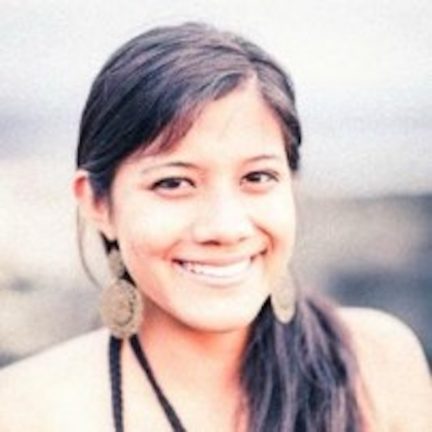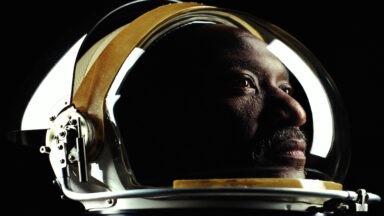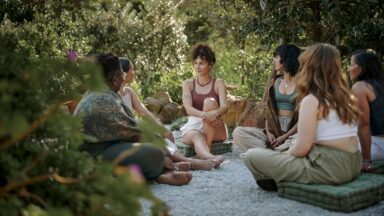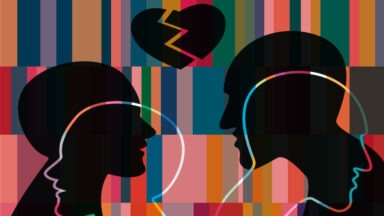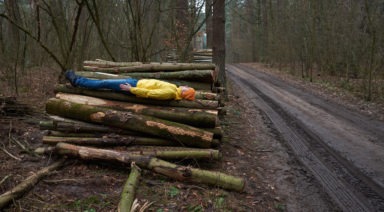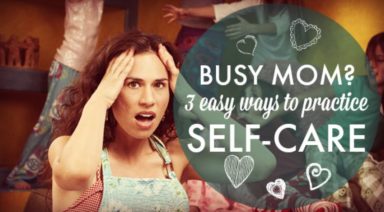20 Eckhart Tolle Quotes to Center Your Heart

Stressed? Worried? Unfocused? Life does that to you when you’re not staying mindful and grounded. Luckily, great teachers like Eckhart Tolle are there to help us remember where our mind should be.
Carve out a little time to meditate on some of these great words from Eckhart Tolle for a quiet moment of peace:
On Being You
-“Give up defining yourself — to yourself or to others. You won’t die. You will come to life. And don’t be concerned with how others define you. When they define you, they are limiting themselves, so it’s their problem. Whenever you interact with people, don’t be there primarily as a function or a role, but as the field of conscious Presence. You can only lose something that you have, but you cannot lose something that you are.
-“Being must be felt. It can’t be thought.”
-“You do not become good by trying to be good, but by finding the goodness that is already within you, and allowing that goodness to emerge. But it can only emerge if something fundamental changes in your state of consciousness.”
-“If you get the inside right, the outside will fall into place. Primary reality is within; secondary reality without.”
-“If your mind carries a heavy burden of past, you will experience more of the same. The past perpetuates itself through lack of presence. The quality of your consciousness at this moment is what shapes the future.”
Watch this full-length episode Modern Mystic with Eckhart Tolle
On Being Present
-“Whatever the present moment contains, accept it as if you had chosen it.”
-“Realize deeply that the present moment is all you have. Make the NOW the primary focus of your life.”
-“The past has no power over the present moment.”
-“As soon as you honor the present moment, all unhappiness and struggle dissolve, and life begins to flow with joy and ease. When you act out the present-moment awareness, whatever you do becomes imbued with a sense of quality, care, and love – even the most simple action.”
-“Nothing ever happened in the past that can prevent you from being present now, and if the past can’t prevent you from being present now, what power does it have?”
On Living Life
-“Life will give you whatever experience is most helpful for the evolution of your consciousness. How do you know this is the experience you need? Because this is the experience you are having at the moment.”
-“The primary cause of unhappiness is never the situation but thought about it. Be aware of the thoughts you are thinking. Separate them from the situation, which is always neutral. It is as it is.”
-“Most humans are never fully present in the now, because unconsciously they believe that the next moment must be more important than this one. But then you miss your whole life, which is never not now.”
-“Life is the dancer and you are the dance.”
-“Acknowledging the good that you already have in your life is the foundation for all abundance.”
On Relationships
– “To love is to recognize yourself in another.”
– “Love is not selective, just as the light of the sun is not selective. It does not make one person special. It is not exclusive. Exclusivity is not the love of God but the “love” of ego. However, the intensity with which true love is felt can vary.
There may be one person who reflects your love back to you more clearly and more intensely than others, and if that person feels the same toward you, it can be said that you are in a love relationship with him or her. The bond that connects you with that person is the same bond that connects you with the person sitting next to you on a bus, or with a bird, a tree, a flower. Only the degree of intensity with which it is felt differs.”
-“Being an outsider to some extent, someone who does not ‘fit in’ with others or is rejected by them for whatever reason, makes life difficult, but it also places you at an advantage as far as enlightenment is concerned. It takes you out of unconsciousness almost by force.”
-“If you both agree that the relationship will be your spiritual practice, so much the better. You can then express your thoughts and feelings to each other as soon as they occur, or as soon as a reaction comes up, so that you do not create a time gap in which an unexpressed or unacknowledged emotion or grievance can fester and grow.
Learn to give expression to what you feel without blaming. Learn to listen to your partner in an open, non-defensive way. Give your partner space for expressing himself or herself. Be present. Accusing, defending, attacking — all those patterns that are designed to strengthen or protect the ego or to get its needs met will then become redundant. Giving space to others — and to yourself — is vital. Love cannot flourish without it.
When you have removed the two factors that are destructive to relationships — when the pain-body has been transmuted and you are no longer identified with mind and mental positions — and if your partner has done the same, you will experience the bliss of the flowering of relationship. Instead of mirroring to each other your pain and your unconsciousness, instead of satisfying your mutual addictive ego needs, you will reflect back to each other the love that you feel deep within, the love that comes with the realization of your oneness with all that is. This is the love that has no opposite.”
-“What you react to in others, you strengthen in yourself.”
A Guide to Center Your Heart
Learn the art of mindfulness and loving kindness — the foundations for living with an open heart — in The Yogi’s Heart, a guide for opening and connecting. For it is only when you approach life from a place of openness can you embody connectedness with all things.
Sacrifice as a Catalyst for Rebirth and Bliss in Joseph Campbell's Hero's Journey

Joseph Campbell is one of the most influential writers, philosophers, and professors in history. His work on mythology has taken native stories beyond their face value and deep into the human psyche, where they resonate with the core of who we are.
Campbell’s life’s work brought countless people across the world in touch with the collective unconscious that underlies our every thought and motivates us to seek happiness. His phrase “follow your bliss” is now a household prompt, thanks to a series of interviews with celebrated journalist Bill Moyers in the early ‘90s. Gaia members can now experience this timeless discussion, listening to episodes discussing “The Hero’s Adventure”, “Sacrifice and Bliss”, and more.
Campbell’s teachings applied the lessons of heroes and metaphors of mythology to our own lives. “A myth is not a lie,” he famously said, despite this commonly misused definition. Rather, a myth is a story meant to turn the mind inward to reflect upon itself and reveal the essential truths of reality and our relationship to the transcendent.
As Campbell explains in his series of interviews with Moyers, myth is often constructed as a hero’s journey — a pivotal course of events that slowly test the story’s protagonist and push them to the next step of unfoldment — toward transcendence. Each obstacle the hero experiences is a reflection of himself, as he is moved one step closer to sacrifice the egoic sense of self to the greater good, which is total consciousness.
When we study mythology, Campbell taught, we find the theme of sacrifice to be all-important. We must let go in order to receive what is already present. Campbell said, “A hero is someone who has given his or her life to something bigger than oneself.” The hero sacrifices his lower nature for his higher nature, and his safety for the one he rescues, or perhaps an object of desire for a noble cause.
Campbell taught that sacrifice is a theme that runs through all things natural — death (the sacrifice of a living being) gives way to new life in an ever-continuing cycle. But death is often metaphorical and may be the death of a habit, a pattern of thinking, or an attachment to something. Or, he said, “When you make the sacrifice in marriage, you’re sacrificing not to each other but to unity in a relationship.”

